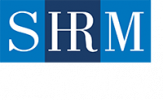How to Safeguard the Privacy of Workers with COVID-19
How to Safeguard the Privacy of Workers with COVID-19
The tension plays out in workplaces across the country: An employee calls out sick and tests positive for COVID-19. Company leaders inform their co-workers that they have been exposed to someone who has the dreaded disease.
But sometimes anxious employees want to know the name of the sick person to gauge their own risk.
Lawyers counsel employers to guard the privacy of the sick employee and not divulge the name. But it's a delicate dance, protecting the privacy rights of the sick person while safeguarding other employees.
Federal guidelines require employers to notify people at risk and contact their local health department. That may be easier said than done.
"An employee will say, 'I am sick' or 'my wife is sick.' The employer will ask the person, 'Who do you work with? Who did you spend time with at work?" said David Barron, a labor and employment lawyer at Cozen O'Connor law firm in Houston. "Recalling who you talked to in the last few days in an office is a hard thing. Employees don't trust that the companies will get it right."
Tensions can arise because other employees don't always trust that the company will recall all the interactions and might inadvertently minimize the risk to them. But don't put out an all-staff e-mail, asking if anyone has interacted with the sick person. Disclosing that person's name may violate state privacy laws and possibly the federal American with Disabilities Act (ADA), Barron said.
Barron suggests that employees who still come into the office limit the number of interactions they have. "If you work in the shop, you shouldn't be in the office. If you work in the office, you don't take lunch with your office friends. You don't want people wandering around the facility."
Employment lawyers are also examining whether a person sick from COVID-19 could be considered disabled and thereby protected under the ADA. Peter Shapiro, an employment lawyer with Lewis Brisbois Bisgaard & Smith in New York City, said the ADA can sometimes apply in cases of temporary disability. "Someone with COVID-19 could be considered disabled. You want to be discreet in discussing disabilities and discussing a particular employee's condition with others. If you are unnecessarily telling other people and creating adverse conditions, I could envision a claim from a creative plaintiff employee out there."
The confusing and changing information about the novel coronavirus brings to mind the early days of the AIDS epidemic, Shapiro said. "People had misconceptions about how contagious people were with AIDS. Something similar could happen here. Hopefully people will realize that it's a temporary condition and once you are better, you are better. But there is a lot of misinformation out there."




